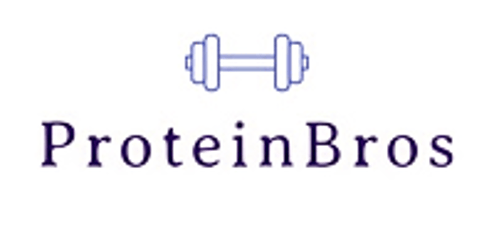How Much Protein Do You Really Need? Understanding Protein Requirements for Optimal Health and Fitness
Protein is an essential macronutrient crucial for various bodily functions. Many people wonder how much protein they should consume daily to maintain health and support their fitness goals.
12/28/20245 min read


Protein is an essential macronutrient crucial for various bodily functions. Many people wonder how much protein they should consume daily to maintain health and support their fitness goals.
The average adult needs about 0.8 grams of protein per kilogram of body weight per day. This amount can vary based on factors like age, activity level, and health status. Athletes and those engaging in intense physical training may require higher protein intake.
Determining the right protein intake involves considering individual needs and lifestyle factors. Consulting a nutritionist or healthcare provider can help tailor protein recommendations to specific health and fitness objectives. Understanding personal protein requirements is key to optimizing overall nutrition and supporting bodily functions.
The Role of Protein in the Body
Protein serves as a fundamental building block for numerous bodily functions. It plays crucial roles in muscle development, hormone production, and immune system support.
Muscle Growth and Repair
Protein is essential for muscle growth and repair. When muscles are stressed through exercise or injury, they develop tiny tears. Amino acids from protein help rebuild these damaged muscle fibers, making them stronger and larger.
This process, known as muscle protein synthesis, is crucial for athletes and fitness enthusiasts. It also helps maintain muscle mass as people age, preventing sarcopenia.
Adequate protein intake supports recovery after workouts. It reduces muscle soreness and improves overall performance in physical activities.
Hormones and Enzymes Production
Proteins are key components in the production of hormones and enzymes. These molecules regulate various bodily functions and facilitate chemical reactions.
Hormones like insulin, growth hormone, and thyroid hormones are made from proteins. They control metabolism, growth, and development.
Enzymes, also protein-based, act as catalysts for biochemical reactions. They aid in digestion, energy production, and blood clotting.
Without sufficient protein, the body may struggle to produce these vital substances. This can lead to imbalances in various bodily systems.
Immune System Function
Protein plays a critical role in maintaining a strong immune system. Antibodies, which fight off harmful bacteria and viruses, are made of protein.
These specialized proteins recognize and neutralize foreign invaders. They help prevent infections and diseases.
White blood cells, key components of the immune system, also require protein for their formation and function. These cells identify and destroy pathogens.
A diet lacking in protein can weaken the immune response. This may increase susceptibility to illnesses and infections.
Adequate protein intake supports the production of immune cells and antibodies. It helps maintain a robust defense against harmful microorganisms.
Determining Protein Needs
Protein requirements vary based on individual factors and lifestyle. Proper intake supports muscle health, tissue repair, and overall bodily functions.
Factors Influencing Protein Requirements
Age plays a crucial role in protein needs. Growing children and teenagers require more protein per pound of body weight than adults. Pregnancy and lactation increase protein demands to support fetal development and milk production.
Physical activity level significantly impacts protein requirements. Athletes and those engaged in regular intense exercise need more protein to repair and build muscle tissue.
Body composition affects protein needs. Individuals with higher muscle mass typically require more protein to maintain their lean tissue.
Protein Recommendations by Age and Activity Level
The Recommended Dietary Allowance (RDA) for protein varies:
Adults: 0.8 grams per kilogram of body weight
Pregnant women: 1.1 grams per kilogram
Lactating women: 1.3 grams per kilogram
Endurance athletes: 1.2-1.4 grams per kilogram
Strength athletes: 1.4-2.0 grams per kilogram
Older adults may benefit from higher protein intake to preserve muscle mass and bone health.
Calculating Personal Protein Intake
To determine individual protein needs, multiply body weight in kilograms by the appropriate factor based on age and activity level. For example, a 70 kg adult would need 56 grams of protein daily (70 x 0.8).
Consider spreading protein intake throughout the day for optimal absorption. Aim for 20-30 grams of protein per meal.
Track food intake using apps or food diaries to ensure adequate protein consumption. Choose a variety of protein sources, including lean meats, fish, eggs, dairy, legumes, and plant-based options.
Consult a registered dietitian for personalized recommendations, especially for specific health conditions or athletic goals.
Sources of Protein
Protein is found in a wide variety of foods, both animal and plant-based. Understanding different protein sources can help individuals meet their nutritional needs effectively.
Animal-Based Proteins
Meat, poultry, fish, eggs, and dairy products are rich sources of animal-based proteins. These foods typically contain all essential amino acids, making them complete proteins.
Red meat like beef and lamb provide high-quality protein along with iron and vitamin B12. Poultry, such as chicken and turkey, offers lean protein options.
Fish and seafood are excellent protein sources that also contain omega-3 fatty acids. Eggs are versatile and nutrient-dense, providing protein and various vitamins and minerals.
Dairy products like milk, yogurt, and cheese offer protein along with calcium and other nutrients.
Plant-Based Proteins
Plant-based protein sources include legumes, nuts, seeds, and grains. These options are often lower in saturated fat and higher in fiber compared to animal proteins.
Legumes such as beans, lentils, and peas are protein-rich and contain fiber and complex carbohydrates. Nuts and seeds provide protein along with healthy fats and micronutrients.
Whole grains like quinoa, oats, and brown rice contribute to protein intake. Soy products, including tofu and tempeh, are complete plant proteins.
Some vegetables, like broccoli and spinach, also contain small amounts of protein.
Complete and Incomplete Proteins
Complete proteins contain all nine essential amino acids in adequate amounts. Most animal-based proteins are complete.
Incomplete proteins lack one or more essential amino acids. Many plant-based proteins are incomplete, with some exceptions like soy and quinoa.
Combining different plant proteins can create complete protein profiles. For example, pairing rice with beans or nuts with whole grains.
This combination approach, known as protein complementation, ensures all essential amino acids are consumed. It's particularly important for vegetarians and vegans to achieve balanced protein intake.
The Impact of Excessive Protein Intake
Consuming protein beyond recommended levels can have negative effects on health. Excess protein intake may strain certain bodily systems and potentially lead to complications.
Kidney Function
High protein diets can increase the workload on the kidneys. The kidneys are responsible for filtering waste products from protein metabolism. Excessive protein intake may lead to increased urinary calcium excretion and a higher risk of kidney stones.
For individuals with existing kidney problems, high protein consumption can accelerate kidney damage. Healthy kidneys can generally handle higher protein loads, but sustained excessive intake may stress renal function over time.
Monitoring protein intake is crucial for those with kidney disease or a history of kidney stones. Consulting a healthcare professional can help determine appropriate protein levels based on individual health status.
Bone Health
Some studies suggest that high protein diets might negatively impact bone health. Excessive protein consumption may increase calcium excretion through urine. This process could potentially lead to reduced calcium absorption and decreased bone mineral density.
However, research on this topic remains inconclusive. Some studies indicate that higher protein intake, when balanced with adequate calcium and vitamin D, may actually benefit bone health.
The relationship between protein intake and bone health is complex. Factors such as calcium intake, overall diet quality, and physical activity play important roles in maintaining strong bones.
Incorporating Protein into a Healthy Diet
Balancing protein intake throughout the day supports optimal nutrition and health. Regular consumption of high-quality protein sources helps maintain muscle mass and promotes satiety.
Meal Planning Strategies
Start by distributing protein evenly across meals. Aim for 20-30 grams of protein at breakfast, lunch, and dinner. Include a protein source with each meal and snack.
Consider these protein-rich foods:
Lean meats (chicken, turkey, beef)
Fish (salmon, tuna, cod)
Eggs
Greek yogurt
Cottage cheese
Legumes (beans, lentils, chickpeas)
Tofu and tempeh
Nuts and seeds
Plan meals in advance to ensure adequate protein intake. Prep protein sources for the week to save time and make healthy choices easier.
Protein-Rich Recipes and Snacks
Try these simple, protein-packed meal ideas:
Greek yogurt parfait with berries and nuts
Grilled chicken salad with mixed greens and quinoa
Lentil soup with whole grain bread
Baked salmon with roasted vegetables
For snacks, consider:
Hard-boiled eggs
Turkey and cheese roll-ups
Edamame
Hummus with vegetable sticks
Protein smoothies with milk, fruit, and protein powder
Experiment with plant-based protein sources to add variety. Combine incomplete protein sources like rice and beans to form complete proteins.
Additional info
Social media coming soon!
Contact us
Newsletter coming soon!
© 2024. All rights reserved.
